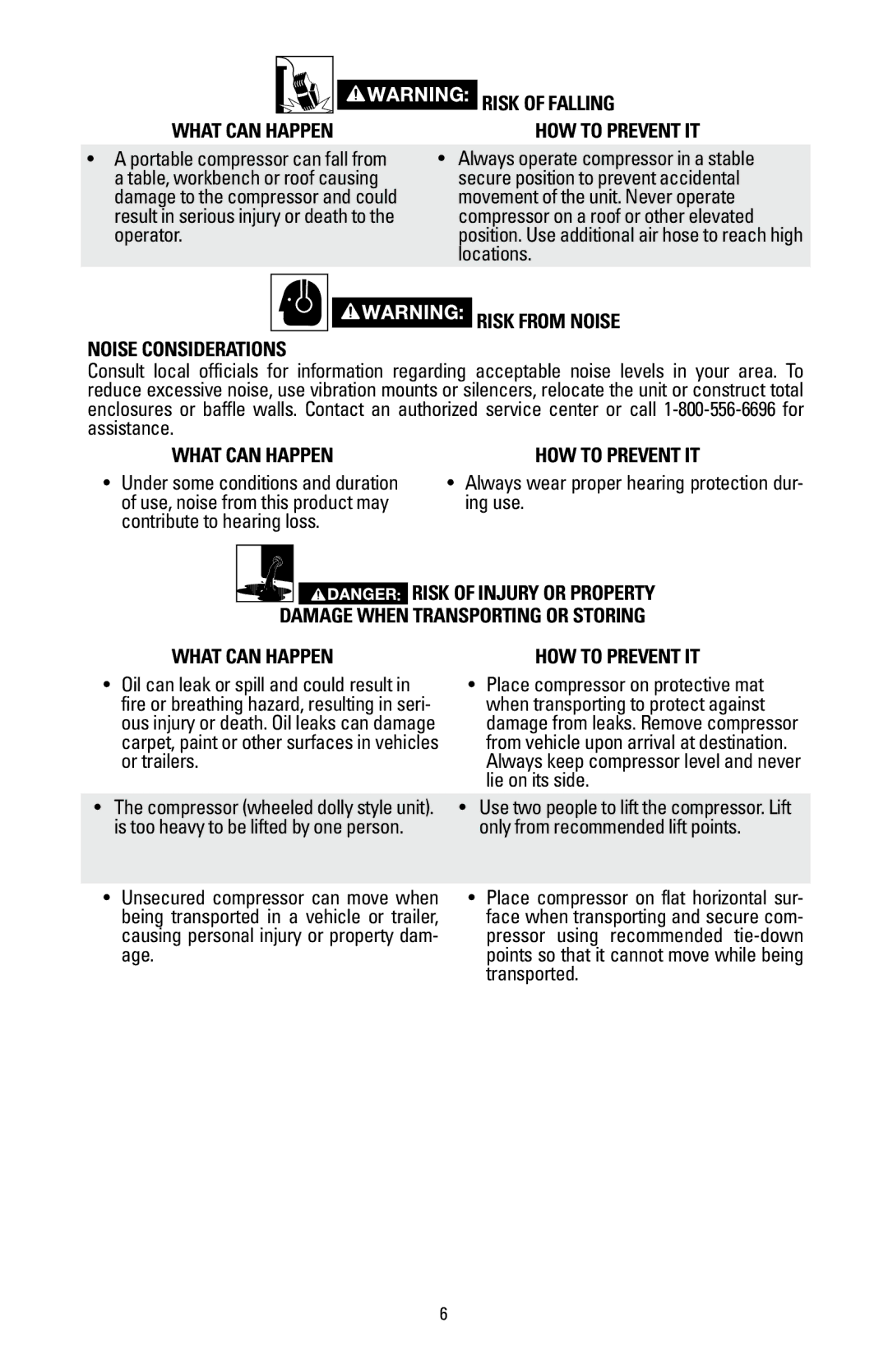
|
|
|
|
|
| RISK OF FALLING |
|
|
|
|
|
| |
|
|
|
|
|
| |
|
|
|
|
|
| |
|
|
|
|
|
| |
What can happen |
|
| How to prevent it | |||
• A portable compressor can fall from |
| • Always operate compressor in a stable | ||||
a table, workbench or roof causing |
| secure position to prevent accidental | ||||
damage to the compressor and could |
| movement of the unit. Never operate | ||||
result in serious injury or death to the |
| compressor on a roof or other elevated | ||||
operator. |
| position. Use additional air hose to reach high | ||||
|
|
|
|
| locations. | |



 RISK FROM NOISE
RISK FROM NOISE
Noise Considerations
Consult local officials for information regarding acceptable noise levels in your area. To reduce excessive noise, use vibration mounts or silencers, relocate the unit or construct total enclosures or baffle walls. Contact an authorized service center or call
What can happen | How to prevent it | |||
• Under some conditions and duration | • Always wear proper hearing protection dur- | |||
of use, noise from this product may | ing use. | |||
contribute to hearing loss. |
| |||
|
|
|
| Risk of Injury or Property |
|
|
|
| |
|
|
|
| |
| Damage When | Transporting or storing | ||
What can happen | How to prevent it | |||
•Oil can leak or spill and could result in fire or breathing hazard, resulting in seri- ous injury or death. Oil leaks can damage carpet, paint or other surfaces in vehicles or trailers.
•The compressor (wheeled dolly style unit). is too heavy to be lifted by one person.
•Unsecured compressor can move when being transported in a vehicle or trailer, causing personal injury or property dam- age.
•Place compressor on protective mat when transporting to protect against damage from leaks. Remove compressor from vehicle upon arrival at destination. Always keep compressor level and never lie on its side.
•Use two people to lift the compressor. Lift only from recommended lift points.
•Place compressor on flat horizontal sur- face when transporting and secure com- pressor using recommended
6
